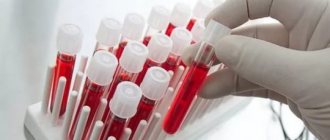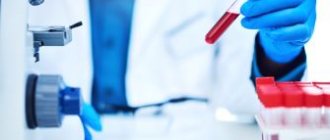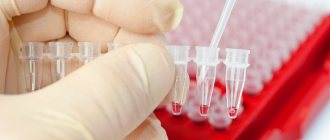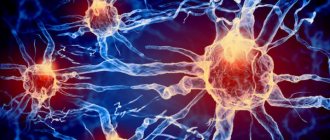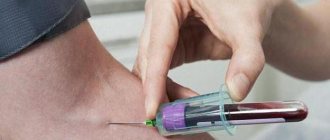- Home /
- Blog /
- Treatment
October 6, 2020
Hormonal levels are responsible for female beauty, health and mood. It affects the reproductive system, the condition of the skin, hair, the formation of character, the emergence of feelings and affections of a person. Therefore, it is so important to know whether everything is in order with hormones, and to understand what consequences their imbalance in the body leads to.
Diseases associated with disruption of the hormonal system are difficult to diagnose and treat. We suggest using this article to figure out which hormones women should be tested for and when it needs to be done. But do not forget: in any case, you must consult a doctor.
Why are hormone tests done?
The content of the article
Almost all processes that occur in the human body are controlled to one degree or another by hormones - elements constantly produced by the secretory glands. All changes directly depend on the concentration of these substances in the body - maturation, growth, pregnancy, and so on. Even minor disruptions in the functioning of the secretory glands lead to a lack or excess of their formation, which results in pathological processes. Constancy of hormonal levels is impossible, since various hormonal elements and structures in the body are constantly being formed and destroyed.
It is to identify and eliminate such disorders that studies are carried out - on hormones. Despite the fairly high price of the tests,
It is necessary to carry out all studies recommended by the doctor.
find out what hormone tests
are needed in order to keep the intensity of substance formation under control in this article.
T4 (total thyroxine)
The concentration of T4 in the blood is higher than the concentration of T3. This hormone, by increasing the basal metabolic rate, increases heat production and oxygen consumption by all tissues of the body, with the exception of the tissues of the brain, spleen and testicles. Levels of the hormone in men and women normally remain relatively constant throughout life. However, in some areas, and Moscow is almost in first place, a decrease in the activity of the thyroid gland is often observed, which can lead to serious deviations in one’s own health and the health of the unborn child.
Indications for hormone tests
As a rule, a patient is prescribed a hormone test due to the presence of the following characteristic symptoms:
- increased blood pressure;
- cardiopalmus;
- weight gain;
- menstrual irregularities;
- mood swings;
- difficulties with conceiving and so on.
Most often, these tests are prescribed to patients when various endocrine pathologies are suspected; they are needed to clarify or confirm a preliminary diagnosis.
When should you not panic?
We warn women that they should not panic if deviations are noticed only once. There are enough temporary reasons for disruptions in our lives. The doctor will prescribe 2-3 repeat tests, and only then will he talk about the need for treatment.
Of course, this will take time. After all, each test must be taken again on certain days of the new menstrual cycle.
The failure can be eliminated by taking a course of hormonal therapy, so a pathological condition may not follow.
What tests are done for hormones?
To make or confirm a patient’s diagnosis, a doctor may need to perform the following hormonal tests:
- hormones
(
somatotropic,
adrenocorticotropic, TSH,
thyroid-stimulating,
follicle-stimulating, luteinizing hormone, prolactin); - thyroid hormones (calcitonin, T3, T4, antibodies);
- pancreatic hormones (insulin);
- adrenal hormones (cortisol, norepinephrine, adrenaline, aldosterone, progesterone,
ACTH); - sex hormones (estrogens
, that is, progesterone, estradiol, hCG, and testosterone).
- tumor markers (PSA, AFP, REA);
- adrenal hormones (progesterone,
cortisol, ACTH); - prenatal diagnosis.
When you need to take hormone tests and when not, the doctor decides.
First, it’s worth understanding what hormones are?
They are produced by certain cells of the body, which are located in special organs. These organs are called endocrine glands. In order for them to function correctly and secrete a normal amount of hormones, their work is controlled by a whole cascade of endocrine regulation organs, namely: the hypothalamic-pituitary system, peripheral glands and the pineal gland.
The hypothalamus is the highest control center for hormonal levels. A signal goes from the hypothalamus to the pituitary gland whether it is necessary or not to release hormones.
The pituitary gland secretes a secretion that can either block or stimulate the production of hormones.
The peripheral glands include the thyroid and parathyroid glands, pancreas, ovaries in women and testes in men.
The pineal gland synthesizes melatonin. It works both day and night completely independently.
when should you get your hormones checked?
Tests for basic hormones
The tests most often performed in St. Petersburg are listed below.
- Follicle-stimulating hormone (FSH)
in women is responsible for the formation of estrogen and the growth of follicles in the ovaries.
The critical level of FSH, which is reached in the middle of the cycle, ensures ovulation. In men, this substance is responsible for the concentration of testosterone in the blood, the maturation of sperm, and provides male strength. Deciphering this analysis
plays an important role in determining the causes of infertility. - Luteinizing hormone or LH
in men increases testosterone levels in the blood, providing conditions for sperm maturation.
In women, it is responsible for the secretion of estrogen, the formation of the corpus luteum, and ovulation. The ratio of FSH and LH in the body of patients, compliance with the norm
, is an important point in the examination for infertility. - Prolactin takes part in ovulation and activates lactation after childbirth. With a decreased or increased concentration of prolactin, the development of the follicle may stop, and as a result, the woman does not ovulate. Also, anabolic processes in the body depend on this substance (activates protein synthesis), it produces an immunomodulatory effect. In men, excess prolactin can lead to impotence, decreased libido, and infertility. how to do this test correctly
. - Progesterone is a prerequisite for the normal course of pregnancy, as well as for its occurrence.
- Testosterone is secreted in a woman’s body by the adrenal glands and ovaries; excess can cause early miscarriage and improper ovulation. A reduction in the level of testosterone in a man’s blood reduces the quality of sperm and causes erection problems. Proper preparation
for this study is important - Thyroid-stimulating hormone (TSH) is tested to rule out or confirm a patient's thyroid dysfunction. Detection of antibodies to this substance makes it possible to predict malfunctions of the thyroid gland.
Interpretation of test results
can only be carried out by a doctor, since it is difficult to understand without professional knowledge. The answer to the question of how many tests are done depends on the specific analysis.
Prolactin
To determine the level of this hormone, it is important to do an analysis in the 1st and 2nd phases of the menstrual cycle strictly on an empty stomach and only in the morning. Immediately before drawing blood, the patient should be at rest for about 30 minutes.
Prolactin is involved in ovulation and stimulates lactation after childbirth. Therefore, it can suppress the formation of FSH for “peaceful purposes” during pregnancy and for non-peaceful purposes in its absence. With increased or decreased levels of prolactin in the blood, the follicle may not develop, as a result of which the woman will not ovulate. The daily production of this hormone has a pulsating nature. During sleep, its level increases. After waking up, the concentration of prolactin decreases sharply, reaching a minimum in the late morning hours. After noon, the hormone level increases. During the menstrual cycle, prolactin levels are higher in the luteal phase than in the follicular phase.
Preparing for hormone tests
Assessing a patient’s hormonal background is an important point in diagnosing many diseases. What hormone tests are needed in a particular case is determined by the doctor. The patient is only required to comply with the rules for preparing for research, which are given below.
In order to get a reliable picture as a result of hormonal tests, the patient must take into account the basic rules for preparing for them.
- For a few days, heavy physical activity is excluded, situations that cause nervous tension are prohibited.
- Two days before the study you need to give up alcoholic beverages.
- Two hours before taking biological material, you should stop smoking.
- The analysis is carried out in a state of absolute calm, therefore, you need to sit and relax 15 minutes before it is carried out.
- Distortion of the results is possible if the patient is taking medications; you should definitely discuss this situation with your doctor.
Some types of hormonal tests
It is advisable to carry out only on specific days of the cycle (if we are talking about a woman), the doctor will definitely warn you about this.
A man can take hormone tests
any day.
To obtain a correct interpretation of the results of hormone tests, strict adherence to the following rules is necessary.
- It is advisable to donate blood in the morning (8-11). The analysis must be carried out on an empty stomach, which means that at least 8 hours must pass between the collection of biological material from the patient and the last meal. At the same time, it is not prohibited to consume water in any quantity; it does not in any way affect the study on the concentration of hormones.
- On the eve of the study, it is recommended to limit yourself to a light dinner; it is advisable to avoid fatty foods in order to avoid distorting the results.
- Approximately two days before the hormone test, doctors advise you to stop drinking alcohol. Excessive physical activity is also prohibited.
- The use of medications is not recommended. In some cases, you can take medications after first discussing this with your doctor. It is advisable to conduct the study before drug treatment or two weeks after its cessation.
- About two hours before the test is due, you need to stop smoking cigarettes. You should also not drink coffee, tea, juice, or sparkling water. There should be no physical stress (climbing stairs too quickly, running), as well as emotional arousal. It is advisable to relax and rest a little 15 minutes before the analysis.
- Donating blood after an instrumental examination, various physiotherapeutic procedures, ultrasound or X-ray examination, massage and other medical procedures is not recommended; you need to wait a certain time.
- If laboratory parameters are checked over time, it is preferable to carry out repeated studies under the same conditions, that is, at the same time of day, in the same laboratory, and so on.
- In some cases, laboratory analysis of hormones
must be carried out strictly on certain days of the cycle.
The attending physician will warn the patient about this. As a rule, we are talking about tests for hormones of the reproductive system.
In order for anal analysis to be carried out on the main hormones
turned out to be as informative as possible, it is very important to prepare for them correctly.
Examination of women
Modern laboratory service capabilities allow you to examine a woman and determine the most favorable days for conceiving a child. To do this, the test results are analyzed in several areas at once: female and male sex hormones, pituitary and thyroid hormones. A gynecologist prescribes such an examination.
You will have to donate blood from a vein on the days of your monthly cycle. As a result, the doctor receives a complete “report” on the hormonal activity of the body (“hormonal mirror”). We can talk about the timing of ovulation and the clarity of the reproductive system.
How to interpret hormone tests correctly
The study of hormonal levels is necessary for the effective detection of many diseases: thyroid diseases, infertility, and so on. In addition, they are carried out to confirm the presumptive diagnosis. You can try to independently decipher a blood test for hormones
, however, it is worth leaving the final diagnosis to a specialist.
When conducting most studies and determining the norm and deviations from it, factors such as the age and gender of the patient should be kept in mind. When assessing the functions of sex hormones in female patients, it is necessary to take into account the specific phase of the menstrual cycle. Therefore, it is advisable to take blood for hormones from women of reproductive age only on certain days of the cycle.
Pregnancy also seriously changes hormonal levels. At different stages of expecting a baby, the levels of hormones in the body become different. For example, in the first trimester, more than a third of pregnant women have a decrease in thyroid-stimulating hormone.
In the first trimester, the level of human chorionic gonadotropin jumps, and so on.
Since hormones have a systemic effect, their regulation is an unusually complex process; indicators are often affected by concomitant diseases (chronic and acute) and the use of medications. And finally, it is important to take into account such aspects as the ecology of the patient’s specific area of residence and the general condition of his body. Therefore, the interpretation of the results should be left to the doctor.
Additional reasons affecting hormonal composition
Practice has shown that disruption of hormonal levels and impaired results can also occur for other common reasons:
- Acute infectious diseases, including viral and parasitic ones.
- Exercising during menstruation.
- Abrupt climate change.
- Sexual infections.
- Post-abortion.
- Forced strict “starvation” diet, energy deficiency.
- Atypical diet (beer consumption has been proven to cause an increase in male hormones in women).
- Pumping yourself up with artificial anabolic steroids and dietary supplements when doing bodybuilding.
- Self-medication with various medications and dietary supplements.
- Stressful situations in the family and at work, night shifts.
All of the above reasons must be eliminated a week before the test.
How to decipher a hormone test yourself
Below are the principles of an approximate decoding of tests for the main hormones.
- Testosterone
is produced in the body of women and men, for the latter it serves as the main sex
hormone
. In a man's blood, the normal level of testosterone is 2-10 ng/ml. In women, this parameter is normally in the range of 0.2-1 ng/ml. In men, excess testosterone levels may indicate early puberty and testicular tumors. A reduction in this indicator negatively affects the quality of sperm and may be a sign of dangerous liver or kidney diseases. If the concentration of this substance in the female body exceeds the norm, this can lead to a miscarriage. - Estrogens belong to the female sex hormones: estradiol, progesterone. These substances are responsible for the menstrual cycle, fertilization, guarantee the preservation of the fetus and the development of the egg. Their content in the body is determined by the phase of the cycle. Postmenopause - 51-133 pM/l, luteal phase - 439-570 pM/l, follicular phase - 198-284 pM/l - these are the normal test results for estradiol.
For progesterone, the following indicators are normal: postemnopause - 1-1.8 nM/l, luteal phase - 23-30 nM/l, follicular phase - 1-2.2 nM/l. If the levels of these substances exceed the norm, this may indicate a tumor of the adrenal cortex, ovaries, pregnancy, or cirrhosis of the liver. A contraction may indicate sclerosis, underdevelopment of the ovaries, the threat of abortion, or lack of ovulation. - Follicle-stimulating hormone
is produced by the pituitary gland and activates the development of follicles in women and seminiferous tubules in men. For the female body, the norm is 4-150 units/l (the phase of the menstrual cycle plays a role), for the male body – 2-2\10 units/l. The concentration in the body of this substance increases when sperm production fails, during menopause, or when ovarian function decreases. FGS levels also fall under the influence of hormonal contraceptives, with prostate cancer, and during pregnancy.
- LH or luteinizing hormone activates the production of sex hormones in women and men. Normally, for women the figure is 0.61-94 units/l (the figure depends on the phase of the cycle), for men – 2-9 units/l. Taking estrogen in large doses can reduce the indicators, while malfunction of the gonads can increase it.
- Prolactin in a woman’s body controls the development of the mammary glands, and after the birth of a child, the formation of breast milk. Its normal value during pregnancy is 500-10,000 mIU/l. Depending on the stage, the indicator gradually increases. This hormone is also present in men - 58-475 mIU/l is considered normal.
- of thyroid-stimulating hormone
in the body is assessed to determine the condition of the thyroid gland. An increase in indicators is a signal of insufficient thyroid function. Their reduction indicates an oversupply. A value in the range of 0.2-3.2 MIU/l is considered normal.
Hormonal studies: norms and pathologies
Today, modern medicine has the ability to conduct hormonal studies of a wide variety of types. But each is prescribed strictly on an individual basis for each patient individually. It depends on why a person is being tested for hormones and what problem he or she went to the doctor for.
Hypothalamic hormones
This group includes hormones such as oxytocin, which is responsible for uterine contractions during childbirth, prolactin, which affects milk production during lactation, and vasopressin, which affects kidney function. Lack of vasopressin often causes diabetes insipidus. And oxytocin deficiency in children from birth can lead to autism.
Pineal gland hormones
The pineal gland synthesizes melatonin, which affects human sleep and wakefulness. A lack of it can cause insomnia or even depression, while too much of it leads to mental disorders such as schizophrenia and manic-depressive psychosis. Indications are considered normal when the melatonin content in the blood during the day is 10 pg/ml, and at night - 70-100 pg/ml.
Pituitary hormones
The pituitary gland is considered the central organ of the endocrine system and has an anterior and posterior lobe, each producing its own hormones. The most famous ones are synthesized in the anterior region: prolactin, somatotropin, adrenocorticotropic and thyroid-stimulating hormones. The posterior lobe produces mesotocin, vasotocin, etc. In most cases, diseases of this part of the brain occur due to an excess or lack of biologically active substances produced in the anterior lobe. For example, with an increased level of prolactin in women (normal value is 109-557 mIU/ml), the menstrual cycle is disrupted and infertility may develop.
Thyroid hormones
The functions of the thyroid gland include the accumulation of iodine and the production of three hormones: thyroxine (T4), calcitonin and triiodothyronine (T3). Metabolic processes in the body depend on these hormones, so their imbalance can cause many serious pathologies. For example, hyperthyroidism - it develops as a result of an excess of T4 and T3, and is manifested by tachycardia, sudden weight loss, and irritability. If there is a lack of these two hormones, hypothyroidism occurs, in which a person quickly gains weight, becomes lethargic, and experiences hair loss. In a hormonal study of the thyroid gland, the following values are considered normal: in adults, the content of T3 is 1.08 nmol, l and T4 - 55-137 nmol, l.
Pancreatic hormones
The pancreas produces digestive enzymes and hormones. One of the most famous is insulin. Its deficiency in the body leads to the development of diabetes mellitus. However, if this disease is suspected, a hormonal blood test for insulin levels is not carried out very often; a routine blood and urine test for sugar is usually sufficient. An analysis of the content of pancreatic hormones is carried out in cases of polycystic ovary syndrome, hypoglycemia, and obesity. The normal value is 2.7 - 10.4 µU/ml on an empty stomach.
Adrenal hormones
The adrenal glands are paired glands consisting of a cortex and medulla. The adrenal cortex synthesizes sex and steroid active biological substances, and the medulla synthesizes norepinephrine and adrenaline (catecholamines). When studying hormonal levels, special attention is paid to the most significant of all - cortisol, aldosterone and catecholamines. The normal functioning of the kidneys depends on the amount of aldosterone: if its content is excessive, then a person may develop Conn’s syndrome, and in case of acute deficiency, the so-called Addison’s disease. Normal values for adults are 100 - 400 pmol/l.
Cortisol is responsible for energy metabolic processes in the body. His normal readings are 101.2 - 535.7 nmol/l. An excess of this hormone in the blood contributes to the development of Itsenko-Cushing syndrome.
Standards for catecholamines: adrenaline - 110 pg/ml, norepinephrine - 70 - 750 pg/ml. Tests for this group of hormones are prescribed for various conditions: arterial hypertension, tumors on the adrenal glands, etc.
Sex hormones.
A special group of biologically active substances are sex hormones. They are produced by the ovaries and seminal glands, and affect the reproductive functions of the body. Sex hormones are conventionally divided into “female” and “male”, but both types are present in the human body, their quantity simply depends on gender. And if the hormonal balance is disturbed, i.e. In a woman, the amount of androgens increases, and in a man, the amount of estrogens increases, then certain pathologies and diseases appear. The most common hormonal blood tests are for progesterone, estradiol and testosterone. A woman’s menstrual cycle depends on the first two, and the second affects muscle mass, libido, growth and development of germ cells. The testosterone norm for men is 8.9 - 42.0 nmol/l, for women - 0.52 - 1.72 nmol/l.
When there is an imbalance of certain hormones, a person develops symptoms that are completely unusual for his gender: in women, excessive hair growth begins, facial features become masculine, and in men, the mammary glands may increase in size. The results of hormonal tests for sex hormones are of particular importance in case of infertility, during menopause, and difficult pregnancies with various kinds of complications.
Modern medicine, without a doubt, has only benefited greatly with the advent of such a field as endocrinology. Hormonal studies today help doctors identify diseases that doctors were unable to diagnose in the old days. They make it possible to establish or refute the true causes of a particular disease and pathology. However, it is very important to comply with all the conditions and standards for taking such tests (for each group of hormones they are different), otherwise the results will be distorted, and this can lead to an incorrect diagnosis and the prescription of incorrect therapy.
Where can I get hormonal blood tests?
Almost all large public and private clinics have laboratories where hormonal studies are carried out. And due to the fact that endocrine diseases and hormonal disorders are mostly chronic, and therefore tests will have to be taken more than once, it is important to know for sure that the quality of the examination will be at the proper level.
The laboratory of the MOSMED clinic conducts all types of hormonal tests of blood and urine. We can do a separate analysis of hormones, for example, a hormonal study of the thyroid gland, or conduct a comprehensive study of hormonal levels and the endocrine system. Our laboratory is equipped with the latest equipment, which allows us to carry out the most complex analyzes in a short time. Specialists will tell you in detail how to prepare for the examination, at what time blood is drawn for a particular test. In addition, our clinic will decipher hormonal studies and give you complete information about what their results mean.
Where are hormone tests done?
Diana Medical Center offers its patients a full range of hormone tests. The drug and hardware base of our laboratory allows us to quickly and reliably determine the concentration of hormones in blood, urine and other biological fluids. In addition, the results are deciphered by our specialists, who, if necessary, will develop an optimal scheme for correcting hormonal levels.
Get tested for hormones
You can skip the line for adults, children, and pregnant women at a convenient time by making an appointment on any day - we work seven days a week. You can find out the cost of the listed studies on our website in the price list of services.
Estradiol
Blood is tested for this hormone throughout the entire menstrual cycle. Estradiol is produced by the maturing follicle, corpus luteum of the ovary, adrenal glands and even adipose tissue under the influence of FSH, LH and prolactin. In women, estradiol ensures the formation and regulation of menstrual function and the development of the egg. A woman ovulates 24-36 hours after a significant peak in estradiol. After ovulation, the hormone level decreases, and a second, smaller amplitude, rise occurs. Then there is a decline in the concentration of the hormone, which continues until the end of the luteal phase.
A necessary condition for the functioning of the hormone estradiol is its correct relationship to testosterone levels.
